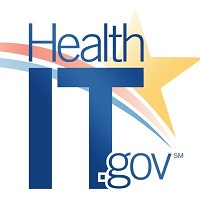 By Chris Muir and Brett Andriesen, ONC
By Chris Muir and Brett Andriesen, ONC
Twitter: @ONC_HealthIT
On the heels of the new USCDI ONDEC Submission System launched in July, ONC is giving you even more opportunities to provide feedback and input into standards and interoperability efforts this summer!
We’re excited to bring you the inaugural Standards Version Advancement Process (SVAP) comment period. The SVAP, a component of our 21st Century Cures Act Final Rule, allows health IT developers in the ONC Health IT Certification Program to voluntarily update their products to include National Coordinator-approved, newer versions of adopted standards. Comments received will help ONC understand which versions of standards are ready for use in the Health IT Certification program.
Additionally, the annual Interoperability Standards Advisory (ISA) review and comment period is back! This is your opportunity to provide comments, suggest revisions, and propose additions to the ISA before we take a “snapshot” and publish the 2021 ISA Reference Edition for the New Year.
The ISA is a dynamic, coordinated catalog of the standards and implementation specifications that can be used to meet interoperability needs in healthcare. As industry’s primary source of input on the interoperability standards for a particular health IT use case, feedback is critical to ensure the most up-to-date and accurate state of health IT standards are included.
Both comment periods will run concurrently, ending Monday, November 9th at 11:59pm ET.
Got comments on the ISA? Please comment directly in the respective “interoperability need” categories or individual SVAP standard pages using the site comment function. This will allow others to see related comments as they review the ISA and SVAP. Alternatively, consolidated comment letters may be submitted by attaching them to a comment on any ISA or SVAP page.
Please note that a user account is required to submit comments for the ISA and the SVAP. Create a user account by clicking the “Log In” button located at the top right of the ISA page.
Thank you for your continued feedback and work toward improved interoperability!
This post was originally published on the Health IT Buzz and is syndicated here with permission.
